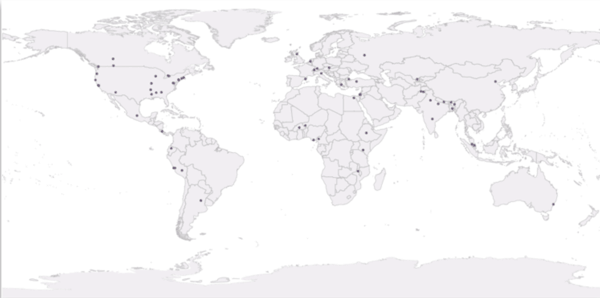








The 2014 Water Diplomacy Workshop will be held in Boston, Massachusetts, USA June 23 - 27, 2014. The fee for the workshop and 6 nights of room and board is $2950.
The Water Diplomacy Workshop is a five-day joint-learning experience that helps participants master important network-management tools and teach these tools to others. It combines the science of water with the negotiation instruction methodologies developed by the Program on Negotiation at Harvard Law School. Interactive lectures, problem-solving clinics, and role-play simulations help participants learn the techniques and strategies presented in the Water Diplomacy Workbook. They leave equipped to teach others in their agencies, organizations, universities, or communities.
Water problems are complex because they cross physical, disciplinary, and jurisdictional boundaries. Water is a vital and limited resource—but fortunately, knowledge about water is not limited. Water professionals trained to synthesize scientific, societal, and political knowledge into practical solutions to water disputes can effectively transform water from a fixed to a flexible resource.

87 participants from 34 countries have successfully completed the Water Diplomacy Workshop (WDW) between 2011 and 2013.
Traditional engineering and economic tools are insufficient to resolve conflicting water claims. Joint fact-finding and collaborative problem-solving tools must be added to each manager’s and decision-maker’s toolbox. Instead of thinking in terms of stable and bounded systems that fluctuate in predictable ways, water professionals must think of constantly changing and open-ended water networks.
He maintains a diverse network of national and international partnerships including MIT, Columbia University, Purdue University, Penn State University, Princeton, BUET in Bangladesh, University of Tokyo, ETH in Switzerland, ICDDRB in Bangladesh, IIT in India, and SaciWATERs to conduct multi-year and multi-million dollar interdisciplinary collaborative research for a wide range of problems focusing on scarcity and abundance of water. His major research sponsors include the National Science Foundation , National Institute of Health, and the National Aeronautics and Space Administration.
Dr. Islam maintains an active national and international consulting and training practice ranging from flood forecasting in India to national water planning in Bangladesh, to water policy planning for ExxonMobil, and to advising South Asian Consortium of Interdisciplinary Water Resources studies. He acted as consultant to the World Bank, United States Geological Survey, Proctor and Gamble, and several other governmental and nongovernmental organizations. He has published over hundred refereed journal and other publications.
In 1993, he founded the Consensus Building Institute (CBI), a Cambridge-based not-for-profit that is now a leading mediation service provider throughout the world. Through CBI, he has advised the Supreme Courts of Israel, Ireland, and the Philippines; helped to found the International Programme on the Management of Sustainability offered every year in the Netherlands, helped to facilitate a variety of international treaty-making efforts; developed the techniques of conflict assessment and joint fact-finding; and created new strategies for building organizational negotiating capabilities. He has been part of the interuniversity Program on Negotiation at Harvard Law School (HLS) since 1982 and taught at the Massachusetts Institute of Technology (MIT) since 1971.